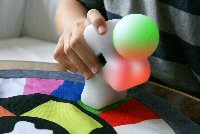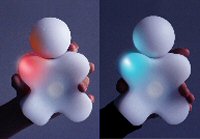Download our regular contributions to Control Magazine.
Issue 30, March 2012
Issue 29, January 2012
Issue 28, December 2011
Issue 27, November 2011
Issue 26, August 2011
Issue 25, July 2011
Issue 24, April 2011
Issue 23, February 2011
Issue 22, January 2011
Issue 21, November 2010
Issue 20, October 2010
Issue 18, June 2010
Issue 17, April 2010
Issue 16, January 2010
Control International Edition July 2011
Control International Edition March 2011
Control International Edition April 2010
Control International Edition August 2010
GATE final publication 2012
Results from the GATE research project
a 75 page overview (pfd 4.7 Mb)
GATE Magazine 2010
a 36-page overview of the GATE project (pdf 5.3 Mb)
Research themes:
Theme 1: Modeling the virtual World
Theme 2: Virtual characters
Theme 3: Interacting with the world
Theme 4: Learning with simulated worlds
Pilots:
Pilot Education Story Box
Pilot Education Carkit
Pilot Safety Crisis management
Pilot Healthcare Scottie
Pilot Healthcare Wiihabilitainment
Knowledge Transfer Projects:
Sound Design
CIGA
Agecis
CycART
VidART
Motion Controller
Compliance
Mobile Learning
Glengarry Glen Ross
CASSIB
EIS
Enriching Geo-Specific Terrain
Pedestrian and Vehicle Traffic Interactions
Semantic Building Blocks for Declarative Virtual World Creation
Computer Animation for Social Signals and Interactive Behaviors
Center for Advanced Gaming and Simulation
Department of Information and Computing Sciences
Utrecht University
P.O. Box 80089
3508 TB Utrecht
The Netherlands
Tel +31 30 2537088
![]() ICTRegie is a compact, independent organisation consisting of a Supervisory Board, an Advisory Council, a director and a bureau. The Minister of Economic Affairs, and the Minister of Education, Culture and Science bear the political responsibility for ICTRegie. The organisation is supported by the Netherlands Organisation for Scientific Research (NWO) and SenterNovem.
ICTRegie is a compact, independent organisation consisting of a Supervisory Board, an Advisory Council, a director and a bureau. The Minister of Economic Affairs, and the Minister of Education, Culture and Science bear the political responsibility for ICTRegie. The organisation is supported by the Netherlands Organisation for Scientific Research (NWO) and SenterNovem.
Scottie is a means of play for children who are hospitalized, hence separated from their family and friends. Computers and phones are limited to the use of verbal or text based expressions. Affective communication and feeling connected over distance is established by playing together.
Scottie is the Innovative Pilot Healthcare by Waag Society. Scottie's aim is to explore possibilities of creating virtual intimacy through play with physical objects. Target users are hospitalized children, ten to fifteen years old, and their family and friends. The first challenge was to develop a playful gaming and communication tool. The second challenge is to research whether Scottie actually increases feelings of connectedness between hospitalized children and their loved ones. Currently, user research is being performed by letting ill children and their parents play with Scotties for several weeks.

Representation of dear ones
Scotties are playful, networked objects that enable children to maintain their roles as classmate, brother and son, next to their new role of ‘being in a hospital'. Scottie facilitates remote play and communication in an implicit and affective way. The design team created several interactive prototypes: functional demonstrators, paper prototypes or interactive ‘black boxes' that illustrate an idea rather than a design. The prototypes have been evaluated with children, in order to better understand the role of sound, color, tactility, gestures, and play elements in the design. Prototyping throughout the design process not only served to evaluate ideas with users, it also helped the designers to develop new interactions.
The final Scottie prototype looks like an abstracted human figure. This figure serves as a representation of dear ones and also has an appeal in itself. Scottie facilitates two forms of play: creating light patterns and creating sound patterns.
Ill children were selected, in cooperation with CliniClowns, to play with Scottie for some weeks. Interviews with these children confirmed the appeal of having an emotional interface to dear ones. Further user research is currently being conducted in cooperation with Delft and Eindhoven Universities of Technology.

Wide-scale use of Scottie
Since the early test results were positive, wide-scale adoption and use of Scottie becomes a serious option. The user research will continue for some months. A customized version of Delft University of Technology's Experience Sampling methodology is developed, which allows the researcher to record feelings and emotions realtime. The gathered quantitative and qualitative data will be analyzed and the results will be disseminated.
In addition, potential exploitation models are being researched, business partners are mobilized, and a plan for producing and distributing Scotties will be written. Waag Society cooperates with TNO to study the development of (social) exploitation models for GATE projects.
Pilot:
Healthcare
Partners
Waag Society
TNO
Utrecht School of the Arts (HKU)
Nederland Breedbandland (NBL)
Key Publications
Astrid Lubsen (2009), Prototyping as a Method in the Design of Playful Objects, Design Principles & Practices. Astrid Lubsen (2009), Exploring Playful and Affective Remote Communication Objects for Hospitalized Children, CHI workshop ‘Tangibles for children'.
Contact details
Betty Bonn, Waag Society
Betty(at)waag.org
